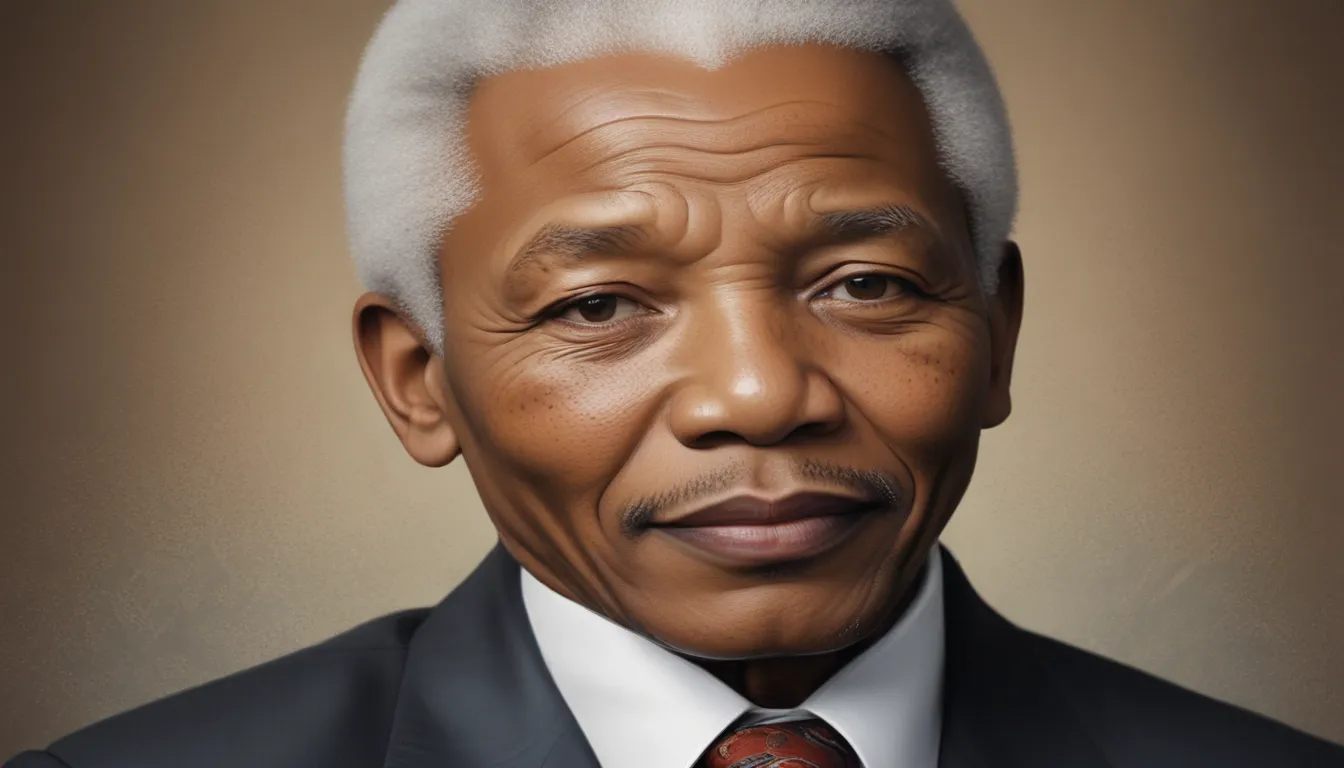The images in our articles may not match the content exactly. They are used to grab your attention, not to show the exact details in the text. The images complement the text but do not replace it.
Nelson Mandela, a name synonymous with courage, resilience, and leadership. Born on July 18, 1918, Mandela’s life was a testament to the power of hope and determination in the face of adversity. From his humble beginnings in the village of Qunu to his historic presidency in South Africa, Mandela’s journey is a source of inspiration for people around the world.
The Early Years of Nelson Mandela
Growing up with his siblings in the village of Qunu, Mandela experienced the joys and challenges of rural life. As a young boy, he regularly attended church services and developed a deep appreciation for his Christian faith. His secondary education at Clarkebury Methodist High School laid the foundation for his future pursuits in law and activism.
Nelson Mandela’s early years were marked by a commitment to education and a passion for social justice. From attending Communist Party gatherings to joining a bus boycott in 1943, Mandela’s activism was fueled by a desire to fight against racial injustice and inequality. His involvement in the African National Congress Youth League (ANCYL) in 1944 marked the beginning of his journey towards political leadership.
The Activism and Imprisonment of Nelson Mandela
As one of the founders of Umkhonto we Sizwe, the armed wing of the ANC, Mandela played a key role in the fight against apartheid. His leadership and activism led to his arrest in 1962, resulting in a 27-year prison sentence. Despite the hardships he faced in prison, including a battle with tuberculosis, Mandela remained steadfast in his commitment to the struggle for freedom and equality.
In 1990, after years of international pressure and growing calls for his release, Mandela was freed from prison. His release marked a turning point in South Africa’s history and set the stage for his historic presidency.
The Presidency and Legacy of Nelson Mandela
On May 10, 1994, Nelson Mandela made history as the first black president of South Africa. His presidency was marked by a commitment to national reconciliation and a focus on addressing the economic and social disparities that plagued the country. Mandela’s administration implemented welfare programs and initiatives aimed at improving the lives of all South Africans, regardless of race or background.
Despite his popularity and success as a leader, Mandela remained humble and focused on serving the people of South Africa. His decision to serve only one term as president was a reflection of his commitment to selflessness and dedication to the greater good.
The Lasting Impact of Nelson Mandela
Nelson Mandela’s legacy extends far beyond his time in office. His dedication to peace, reconciliation, and equality has inspired generations of leaders and activists around the world. Mandela’s belief in the power of sports to break down racial barriers and unite people serves as a reminder of the importance of unity and solidarity in the face of division and oppression.
Mandela’s passing in 2013 marked the end of an era, but his spirit lives on in the hearts of millions who continue to be inspired by his courage and vision. July 18 is celebrated as Nelson Mandela International Day, a testament to his enduring influence and legacy as South Africa’s “Father of the Nation.”
In conclusion, Nelson Mandela’s life is a story of courage, resilience, and hope. From his humble beginnings to his historic presidency, Mandela’s journey serves as a reminder of the power of perseverance and dedication to a cause greater than oneself. As we honor his memory and celebrate his legacy, let us remember the words of Nelson Mandela himself: “Do not judge me by my successes, judge me by how many times I fell down and got back up again.”






